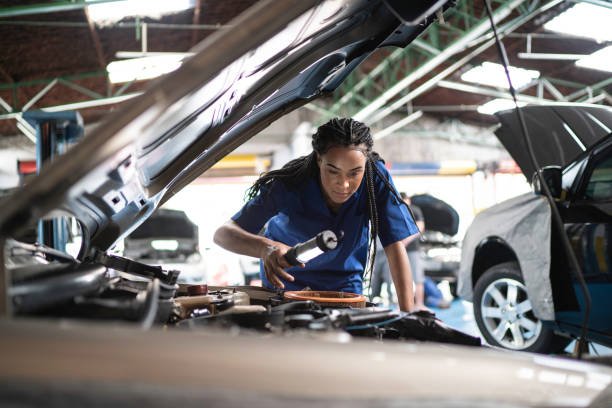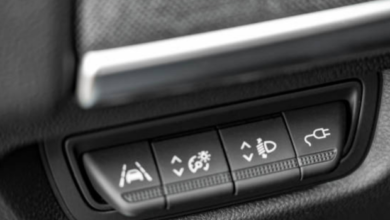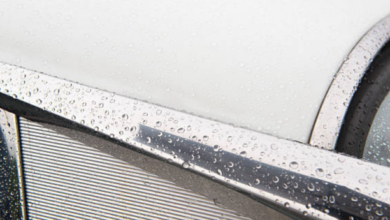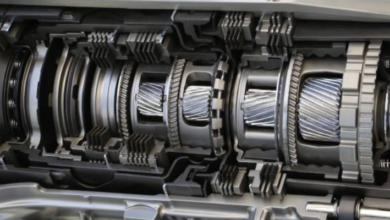Transmission Noises That Mean Trouble

What is Transmission Slipping?
A transmission slip simply describes a case when the transmission body (a gearbox) fails to do the right thing of keeping the transmission inside the desired gear or not be able to hold onto the one selected. Conceive yourself sitting in driving direction and your car slows its own move and somehow do a dance among transmission and at the same time holes gaps with power, or you will have an unexpected forwarding with engine RPM not synched with movement speed. Forget having the representation of a Ferris wheel that one needs to strap up to. It is merely a thrilling emotion that running with no danger of consequences implies. There are some transmission noises which predict the failure of the transmission which are discussed below:
Transmission Noises That Mean Trouble:
Nobody likes to be stranded by failure of their transmission when we rattle a whole engine block. It may cost you just too much or require you to change your plans outright. Being aware of the noises which indicate the transmission trouble is the utmost important feature because it helps you to fix the problem quickly when it is still at the early levels and to prevent further damage. Here are some transmission sounds that should raise red flags:Here are some transmission sounds that should raise red flags:
Whining or Humming Noise:
If there is a whining or humming sound heard from your transmission which triggers when the vehicle is in motion, you should be aware that there is either low transmission fluid or eroded bearings. If one ignores this sound, overheating becomes inevitable accompanied by premature wear of transition components.
Clunking or Banging:
A clunking or banging noise in shifting the gears, especially in response to acceleration or deceleration, is an indication worn clamps or broken cables which helps to prevent from the transmission failure or internal transmission components damage. Waiting until it is too late to do repairs would only result in the worsening of the problem and total inactivity.
Grinding or Squealing:
Clicking or scraping noises while catching gear, particularly in sedans with manual transmissions, might be due to clutch parts that have worn out, or clutch settings that are not accurate enough. In the cases of automatic transmission, these sounds may indicate what torque converter is not effective, no clean fluid used, or some gears damaged.
Whirring or Buzzing:
The car bellows, or just buzzes, when it is in neutral or park. The failure can be attributed to a faulty pump or torque converter in an automatic transmission. In this case, too, transmission fluid pump fault or low fluid levels may be inferred.
Hissing or Whistling:
If you could hear some noise from the transmission area of the car- H2 – that means your vehicle could have a vacuum leak, worn out seals or malfunctioning transmission modulator valve. Thus, in such repair situations, one needs to be careful to prevent oil leaks and the transmission’s malfunctioning.
Rattling or Chattering:
Clanking or knocking sounds, especially when the engine is changing speed or staying in lower gear, can also be a sign of poor condition of the gear box system. The weak components there may include bolts, brackets etc or internal gears. These will cause problem with the transmission or even at the point of cannot continue with the vehicle anymore.
Slipping or Sluggishness:
This, however, is not literally a sound of gears slipping or the feeling of a hanging gear during an attempt to switch gears, which are common signs of failure in transmission systems. In case you feel that your tranny is slipping out of the gear, struggling to go or slipping rapidly, it is the time to find the mechanic professional who will evaluate your transmission system before it will be disastrous.
Conclusion:
In case of experiencing any of these sounds when shifting into “D” or reverse or if you suspect anything wrong from the behavior of the transmission. Consider this situation as a matter of urgency and make an appointment with a professional mechanic or transmission expert. There are also some signs of transmission overheating which also results in the transmission slipping. Tackling transmission problems can be both pressing and expensive at the same time leading to the unfortunate loss of vehicle use and safe operation of it on the road. Through early identification and frequent problem checkups, you are able to preserve the quality of the car which helps you postpone the trips to your mechanic.




